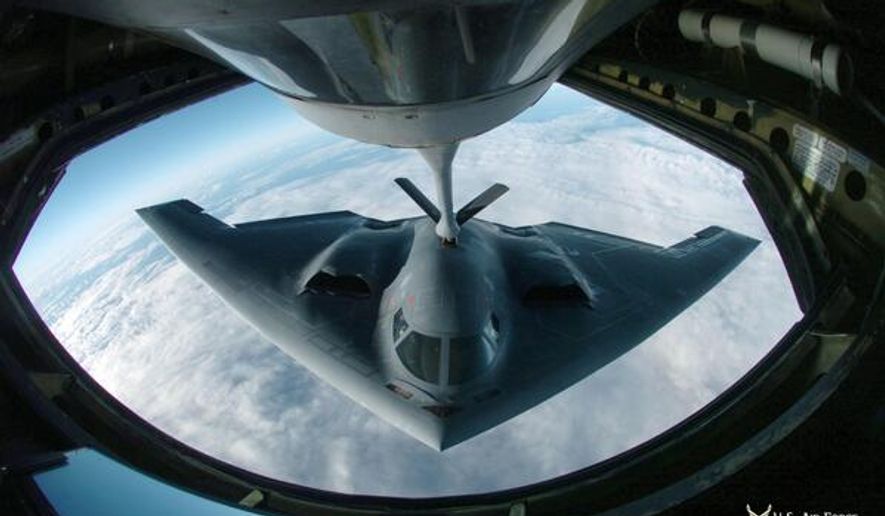Relations between the U.S. and North Korea are so bad the two countries can’t even agree on whether they’re at war.
With rhetorical tensions ratcheting between President Trump and North Korean leader Kim Jong-un, the White House on Monday rejected an accusation by Pyongyang’s top diplomat that Mr. Trump had effectively “declared war on our country.”
Speaking to reporters in New York on the sidelines of the U.N. General Assembly, North Korean Foreign Minister Ri Yong-ho said his country considers Mr. Trump’s comment last week that North Korea’s leaders “wouldn’t be around much longer” as an act of war and warned that the North could shoot down U.S. warplanes flying nearby — whether they violated North Korean airspace or not.
“At last, he declared a war on our country,” Mr. Ri told reporters in New York City. “Even the fact that this comes from someone who is currently holding the seat of the United States presidency, this is clearly a declaration of war.”
He added, “We will have every right to take countermeasures, including to the right shoot down the United States’ strategic bombers even when they are not inside the airspace border of our country.”
Hours later, the White House called North Korea’s claim “absurd.”
SEE ALSO: H.R. McMaster: Open war with North Korea a possiblity
“We’ve not declared war on North Korea,” said White House press secretary Sarah Huckabee Sanders, while adding that “it’s never appropriate” for one country to shoot down another country’s planes over international waters.
“Our goal is still the same,” she said. “We continue to seek the peaceful denuclearization of the Korean peninsula. That’s our focus, doing that through both the most maximum economic and diplomatic pressures as possible at this point.”
National Security Adviser H.R. McMaster told a Washington symposium Monday, “What we hope to do is avoid war, but we cannot completely discount that possibility.”
Given a string of North Korean missile and nuclear tests in defiance of international sanctions and growing anger from the U.S. and its regional allies, “We have thought through four or five ways to resolve this, and some [options] are uglier than others,” Gen. McMaster said.
U.S. Air Force bombers escorted by fighter jets flew over waters off North Korea on Saturday, the farthest north of the Demilitarized Zone that any U.S. aircraft has flown off North Korea’s coast in this century. The Pentagon said it was a show of force to show the range of military options available to Mr. Trump.
In a fiery address, Mr. Trump told the U.N. last week that the U.S. was prepared to “totally destroy” North Korea if Mr. Kim and his regime attacked the U.S. or its allies. He said Mr. Kim is on a “suicide mission” with his insistence of pursuing a nuclear weapon capable of hitting the U.S.
Mr. Trump tweeted over the weekend: “Just heard Foreign Minister of North Korea to speak at U.N. If he echoes thoughts of Little Rocket Man, they won’t be around much longer!”
As the rhetoric from both sides has escalated, North Korea has threatened to detonate a nuclear weapon over the Pacific Ocean. Mr. Kim has called the president “mentally deranged,” while Mr. Trump has dubbed the North Korean leader “Rocket Man.”
Mr. McMaster rejected the idea that Mr. Trump’s pointed and sometimes belittling tone were fueling the crisis or marked a sharp break with previous U.S. administrations.
“I do not think we have seen any evidence” of Mr. Trump’s rhetoric driving Pyongyang “closer or further from war with the U.S.,” Mr. McMaster said. “But I do not think there is any lack of clarity now” over what the North faces if it continues to defy the international community.
⦁ Carlo Munoz contributed to this report.
• Dave Boyer can be reached at dboyer@washingtontimes.com.




Please read our comment policy before commenting.